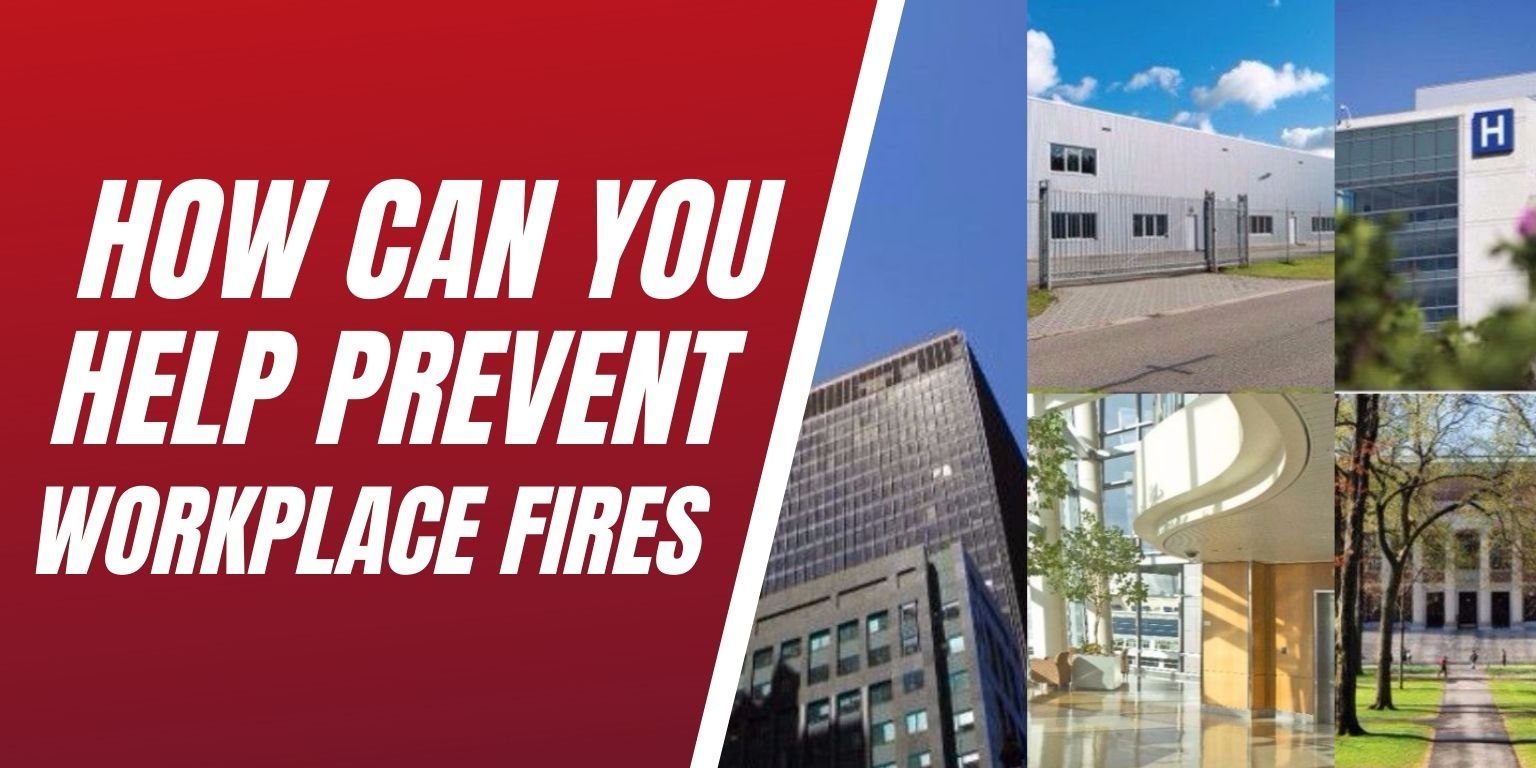
It’s Fire Prevention Week! The National Fire Protection Association (NFPA) is hosting a weeklong event about learning the sounds of safety. But as a fire and life safety services company we wanted to share a few tips you can do to help prevent a fire in the workplace. For more information or tip from NFPA’s fire prevention week, click here!
Fire is the largest cause of commercial property damage in the United States and is responsible for almost 40 percent of industrial property loss. As a fire and life safety protection company, we emphasize the importance of preventing the spread of fire through properly maintained fire protection systems. However, there is not enough emphasis on preventing a fire from starting. So, we wanted to remind you of the steps that you as an individual can take to help prevent workplace fires!
Steps To Prevent Workplace Fires
Check For and Fix Damaged Electronics
Most commercial or office buildings use some kind of electrical equipment, which means there is already the risk of a fire starting from an electrical source. However, workers probably wouldn’t think about checking the electrical equipment for faulty wiring or improper use of electrical outlets. But all it takes is one spark for something flammable to start a fire.
November 21, 1980, a fire started at the MGM Grand, killing 85 people and injuring more than 700. The primary source of ignition was an electrical ground fault.
Check to see if wires have become worn, cut or damaged during use. Replace plugs that produce sparks when plugged into an outlet. If these hazards are found, they should be fixed or properly disposed of to prevent workplace fires.
Dispose of Cigarettes Safely
Some of the most tragic fires in healthcare facilities have been due to cigarettes that have not been properly disposed. Too often, cigarettes are thrown away by workers that have not been completely extinguished. Although the cigarette may seem out, cigarette ashes can continue to burn and will ignite anything flammable they come into contact with.
December 8, 1961, a fire started at Hartford Hospital, killing 16 people. The fire had been caused by a cigarette tossed into a trash chute, which ran through all 13 floors of the hospital.
To prevent these fires, designate certain areas of a facility for smoking with proper disposal bins and no flammable materials nearby. Make sure that a cigarette has been completely put out in order to prevent the possibility of something catching fire.
Never Leave Cooking Unattended
While most cooking related fire are at home, people use kitchens in restaurants, office buildings, dorm rooms on educational campuses, and now it is pretty common to see kitchens in hotel rooms. It’s always a good idea to remember cooking safety no matter where you are cooking. The kitchen is where heat, electricity, water, and grease come together, and can be a potential fire hazard. Often times, employees will run an errand while waiting for their food to finish cooking. Leaving food unattended while cooking allows for a fire to start from overheating a pan or if electricity comes into contact with water.
If there is a reason to leave the kitchen, make sure to turn off the stove and take your pots and pans off the heat. If you are cooking food in the oven, take the food out of the oven and turn off the broiler.
Unfortunately, even after taking all the necessary precautions in preventing a fire, accidents will happen. That’s why ensuring that your facilities fire and life safety protection systems are properly maintained and up-to-date with the code. Contact Us Here, or call 888-675-4519 to learn how LSS Life Safety Services can help you keep your facility’s fire and life safety protection systems in compliance with the code!

